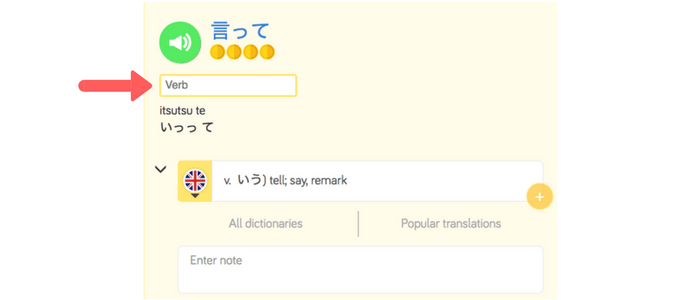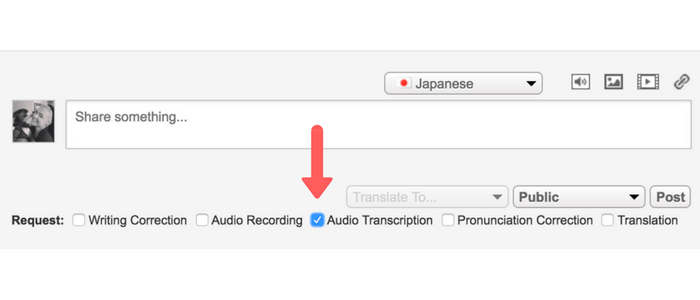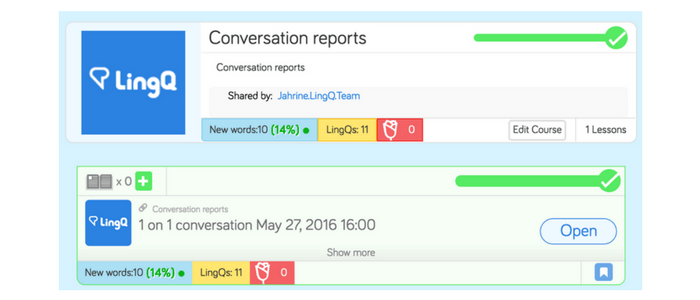The Four Language Skills and How to Improve Them
In order to master a language there are four skills you need to focus on: listening, reading, speaking and writing.
Some learners prefer to only read a language and never really get to grips with the speaking, some jump right in to the speaking and never learn to read, some hate to write and so never bother with it, everyone’s different. If you want to be a language all-star though, a quadruple threat, you’ll need to work on all four of the language skills. Here are some tips on how to improve each one.
Reading
Read content of interest
Newspapers, blogs, novels, magazines, the backs of shampoo bottles, whatever it is you choose to read you are going to make gains in your target language by doing so. You can’t really avoid it. If you read a word or phrase you don’t understand, you have to look it up. You may forget it a few seconds later, but keep bumping into that word or phrase and looking it up over and over again and it’ll stick eventually.
It helps if you’re so into what you’re reading that you actually care what the word or phrase means. That’s why reading content of interest is so important. This is more difficult if you’re a beginner, but there are ways you can avoid mind-numbing lists of words and sentences. Reading short stories, for example. As long as the vocabulary and structures are simple and there is some kind of narrative, you’ll be more engaged and therefore more likely to remember what you’re reading.
We’ve just created a course of mini-stories on LingQ. They’ve been translated into lots of languages and can be found in the content libraries. Type “mini stories” into the search bar and see if they’re available in your target language.
Read content at or just above your level
The next thing to think about when you’ve found content you’re interested in is the level of difficulty. Is it kind of easy? Use it as a quick review before sinking your teeth into more challenging stuff. Staying with easy content for too long puts you at risk of getting bored, and a bored language learner is not a happy language learner.
Reading content that is at your level or just above it is the best tactic. That way you’ll be able to get the gist of what you’re reading and find words and phrases to look up and save to your dictionary. That’s not to say that you shouldn’t try reading more difficult material, this can be extremely motivating for some learners. Just be careful that you don’t frustrate yourself with content that has a high percentage of words, phrases and structures you’ve never come across before.
Create your own dictionary
One of the most frustrating things in language learning is remembering vocabulary. You know how it goes, you see a word you don’t know, look it up in a dictionary and then a minute later it’s completely gone from your brain. It’s like it was never there.
A great way to make sure this time spent looking words up is not lost is to create your own dynamic dictionary. Save all words and phrases, along with any extra information that is helpful, to your own language database. It’s easy to do at LingQ. All words and phrases you tell the system you’re learning are saved. You can take the translations other LingQ members have added, or you can add your own.
Adding notes and tags to your words and phrases is a great way to get the most out of your personal dictionary. You can categorize by tense, part of speech, or whatever you like. Once you have a number of words and phrases tagged, you can click that tag and see them all. This is great if you’re struggling with a certain feature of a language and need to see some examples to make things clearer.

When you make your own dynamic dictionary like this you are able to keep track of your progress and see how close you’re getting to the next milestone at any time, too. Give it a try.

Listening
Listen to native speaker content
Audio created for language learners is so tempting. Everyone speaks so slowly and they articulate ev-er-y word perfectly… yay! One big problem, native speakers don’t speak this way. Most talk quickly, blend words and pepper their speech with slang.
Should you even bother learning from this kind of beginner audio then? Is it just a waste of time? No, no exposure to your target language is a waste of time, but you should aim to get out of this kind of content and into native speaker stuff as soon as possible. It will be uncomfortable at first, but the awesome progress you’ll make will be worth it!
Find audio with matching transcripts
One thing you can do to make listening to native speaker content easier is find audio with a matching transcript. This way you can read along and look up words and phrases you without missing anything. It isn’t always possible to find audio that has a transcript, but you can always ask a LingQ member to transcribe it for you. Just add the audio to the Exchange, set the points you are willing to reward and you’ll be notified when someone creates the transcript.

Listen fast and slow
So you have your awesome podcast and accompanying transcript, but the presenters are speaking so darn fast. No problem, just slow it down! You can catch more of what is being said and your stress levels will lower.
There’s one problem with this though, most native speakers don’t speak slowly, so you aren’t really helping yourself if your goal is to eventually communicate with them. The solution is simple, combine listening to slowed down audio with listening to audio at regular speed. I like to listen to native-speaker speed audio until I am on the brink of “I can’t do this, why am I trying?” despair, then I switch to slowed down audio, my blood pressure normalizes and life is good again!
Speaking
Speak when you are ready
There really isn’t a magic answer to the question “When should I start speaking my target language?” Some people prefer to start speaking straight away when they know only basic phrases. It’s motivating for them to be understood and they feel that they’re making headway. Other learners, like LingQ cofounder and polyglot Steve Kaufmann (video below), prefer to immerse themselves in the language a lot more before they begin to speak. It really has to be what you feel is right for you.
If you start speaking early on and find that you’re getting frustrated as you don’t have much to say, or you’re anxious because you can’t understand a lot of what’s being said back to you, save speaking for later and focus on the other skills. If you’re anxious to get speaking and just want to see what you can do, get speaking right the heck now!
Don’t have mistakes corrected too much
When you start speaking your conversation partners are going to want to correct your mistakes. This is super helpful. After all, how else are you going to know what you need to work on? There is a risk though, if you are corrected too much, you may feel like you are failing at learning the language; like you’re wasting your time even trying. Being corrected constantly also disrupts your flow and can make you lose your train of thought.
A great way around this is to have your conversation partner note down or tell you a few things you had issues with after the conversation. Then you can use that information to plan your next study session. After a conversation on LingQ you’re sent a conversation report. Here you’ll find notes on the issues you had while speaking, all in your target language, so you can study them on LingQ.

Embrace failure!
One thing that’s for sure about speaking in a new language is that you are going to make tons and tons of mistakes. For some people that isn’t a big deal, they pick themselves back up and try again. Other personalities will struggle more with this fact, and it may be a catalyst for surrender for some. You just have to remind yourself every time you make a mistake that it’s normal, it’s necessary and it’s helping you to reach your goal of fluency, even though it may not feel like it.
Writing
Make a habit of writing every day
Doing something every day makes you better at it, who knew?!
It doesn’t matter what you write about, just as long as you’re writing something each day. If you’re a beginner, write some sentences about what you did that day or what you’ll do tomorrow. Intermediate learners might want to go a step further and add how they’re feeling and describe the people and places they came in contact with that day. Advanced learners, you must write a 2000-word essay on philosophy each night – joking 🙂
It apparently takes 21 days for the average person to build a habit. Why not plan to write every day for 21 days as an experiment and see how you feel on day 22? Using the break of chain productivity technique might help.
Have your writing corrected and take notice of the changes
Taking notice is an important and difficult habit to develop as a language learner. It’s even one of Steve’s three golden keys of language learning. In order to fully develop this skill, we need to make sure we’re taking notice of the aspects of our target language across all skills, and that means writing too.
You don’t need to have every piece of writing you do in your target language checked, but it’s a good idea to do this sometimes. You’ll see the mistakes you’ve been making and slowly be able to work toward more complex and natural writing. Seeing the topics you’re having issues with broken down like in the pie chart from a LingQ writing correction also helps.
Take all of this advice and work toward mastering each skill in your target language, or take some of it and work on the skills you enjoy working on. Whatever you choose, be sure to always be doing what you enjoy in your language. Happy language learning!
